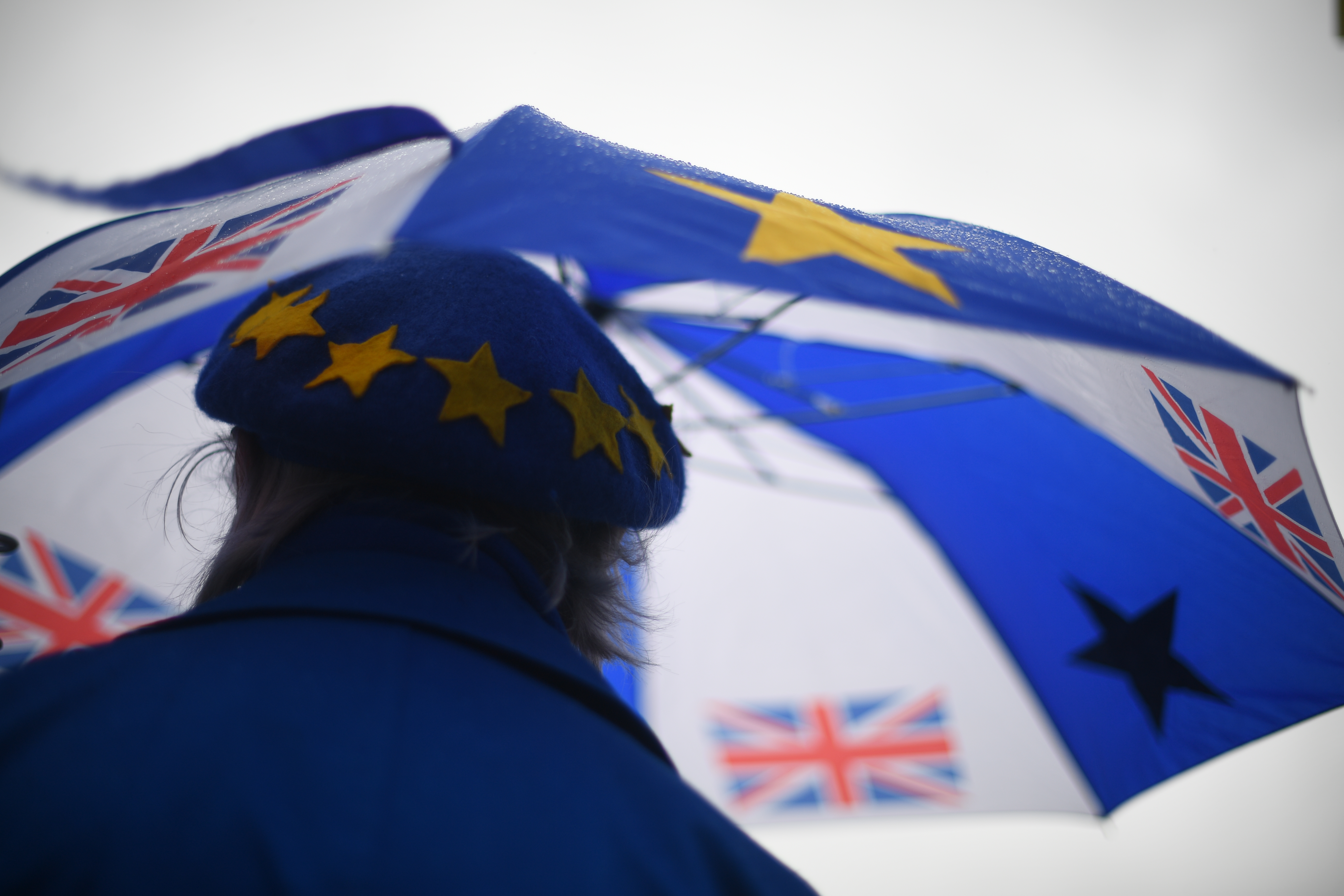David Gauke, Lord Chancellor and Secretary of State for Justice, was right to warn that the cause of Brexit was in danger of being sucked into the cause of English nationalism.
Because England is by far the largest part of the United Kingdom, it could, if it wishes, totally ignore the views of the Scots, Welsh and Northern Irish and promote English interests as the only ones that matter. At least two of those three, Northern Irish and Scottish, are out of step with the English majority expressed in the 2016 referendum. And as soon as one mentions English interests one is referring not just to economics but to a sense of specifically English identity, and by subtle and unstated implication, English superiority.
And that is the way populism operates. It defines the "us" as not just "not them" but as "better than them". This quickly ratchets up to levels of aggression and hostility against those who are not "us", particularly when "they" are seen to stand in the way of something that "we" want to do. And the inevitable consequence is that "they" push back, becoming anti-English. The United Kingdom would not long survive as an entity once that takes off.
It may be true, as Linda Colley argues in her book "Britons: Forging the Nation 1707 - 1837", that British identity really only emerged as a response to the Jacobites, to persuade the people of the British Isles to accept the newly arrived Hanoverians. It attributed to the British many aspects of a more mystical English identity, including a sense of exceptionalism - that to be British was to be called by God to a specific role in the world, with a unique set of rights, duties and privileges. It was specifically Protestant. This "chosen people" idea became welded into the ideology of the British Empire. It is still somewhere lingering in the ideology of Brexit.
So there is patriotism and patriotism, and the dangerous kind is the exclusive one. Identity politics focuses on "who we feel we are", on membership of an imagined community where identity is shared and celebrated, a "folk" - the German "volk" expresses it better. (By imagined I do not mean unreal, but existing in the mind.)
Against that we have to assert another theory of identity that is not mutually exclusive but which embraces a complex variety of identities. So far the British have been good at that - one could be both Scottish and British, English and British, Black or Muslim and British. Or one could pile one identity on top of the other - Black Scottish and British - or if you like, Black Scottish British gay Catholic female police officer, footballer, parent, and family member (and maybe, even, Tablet reader).
In other words it recognises people with multiple overlapping identities, the many different communities to which they belong, and does not set one at war with another. That is not always easy. For centuries it was held to be difficult verging on impossible to be both British and Catholic, and the slowly emerging compatibility of those identities was a key factor in defining the concept of Britishness.
Not always easily. I once asked a prominent Anglican churchman from Northern Ireland whether he felt Irish. There were 15 seconds of embarrassed silence before he answered "I don't know". I think he would more happily have answered the question whether he felt European, as that was not at the time a contested issue.
And this is where Brexit comes into the picture. The European Union's concept of European citizenship offers a novel and possibly exciting extension of identity. Indeed, considering how much British blood has soaked into European soil over the centuries, we might say - not before time.
The denial that British identity automatically included European identity always was unnatural and untrue; and the reverse is equally so. We should want EU citizens who come to Britain to feel at home here, and to have the appropriate rights of belonging. We British should be able to feel the same, as members of the "folk" who built the Coliseum in Rome or the Acropolis in Athens, for whom Notre Dame in Paris is also our mother church, and whose fellow citizens include Dante, Leonardo, Beethoven, Mozart, Voltaire, Hugo, Zola, Goethe and all the saints (or most of them).
That is what Brexit is destroying, and for some of us it feels like being threatened with exile. What a clever move it would be for the EU to offer to those British who want to retain their European identity - and passport if they so wish - the right to do so, on an individual basis. And that would be the perfect answer to the fears expressed by David Gauke.
Clifford Longley will be writing regular updates on Brexit over the coming weeks. To read more click on the links below.
Dark days in Brexit land
If a 'no deal' Brexit is ruled out, what next?
Revocation of Brexit on the horizon?
Could Brexit now be abandoned altogether?
Did May fundamentally misunderstand the Brexit referendum result?
What the Conservative Party really needs is a shift to the left
Is the collective of IQ of the House of Commons that of an 11-year-old?
Why is the British bulldog proving so bloody obstinate?
What are the chances of a second referendum?
May's negotiating tactics make no sense
A Corbyn prime ministership has never seemed more likely
Is the British constitution to blame for the Brexit mess?
May's talks with Corbyn could prove the final straw for the Tory right
How Catholic ideas are influencing Brexit debate
Will a Brexit deal be a bridge too far for Britain?
Battle for Brexit: woke, revoke and remain



 Loading ...
Loading ...
What do you think?
You can post as a subscriber user ...
User comments (0)